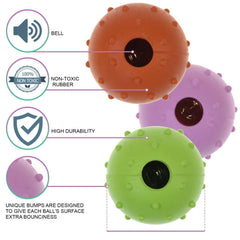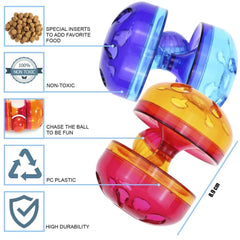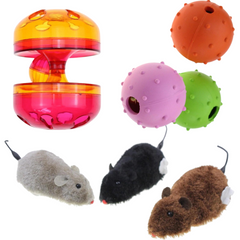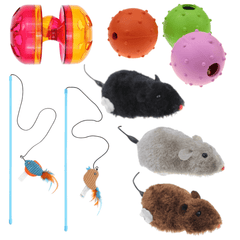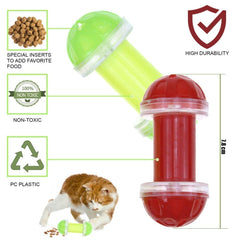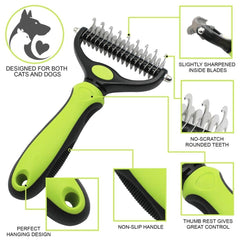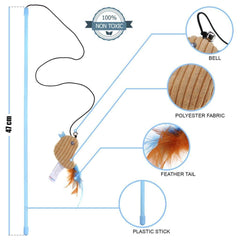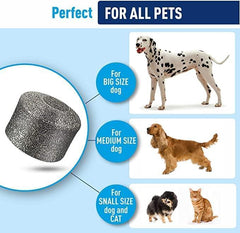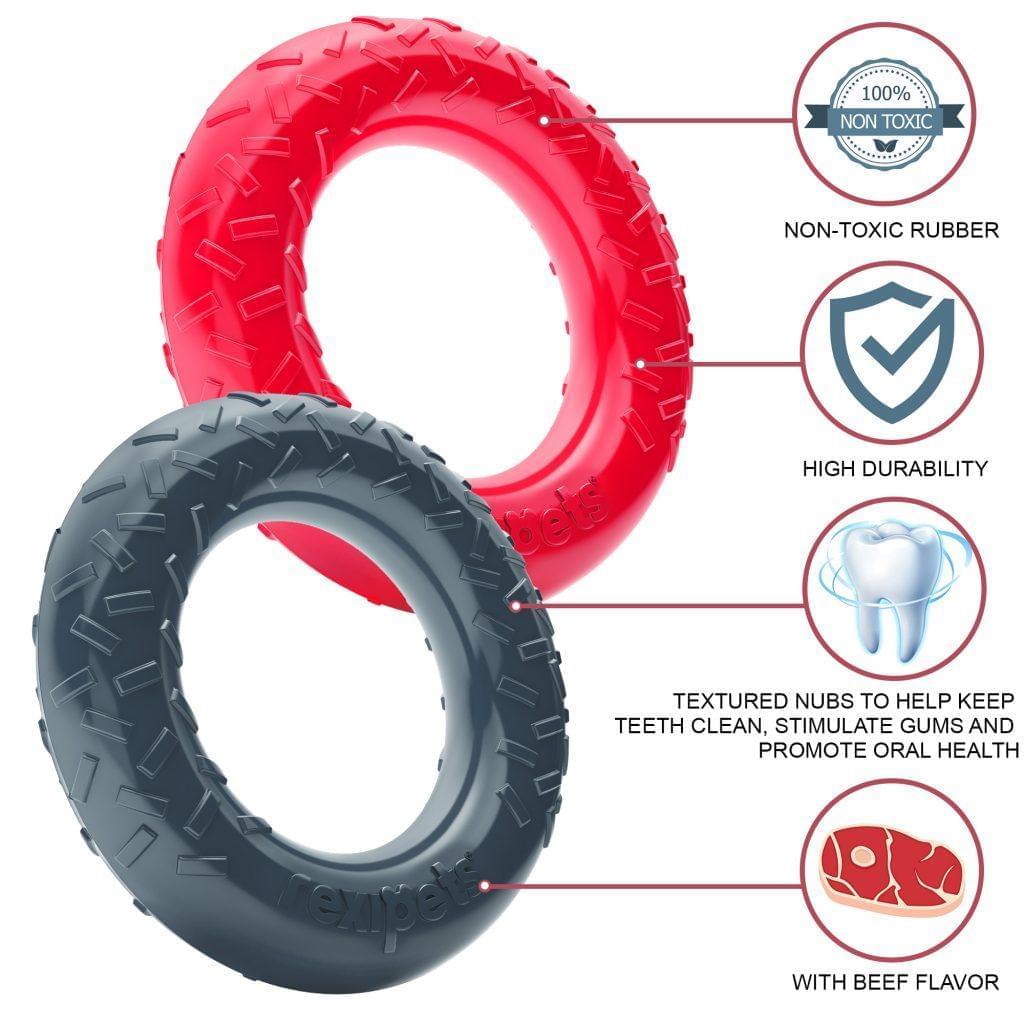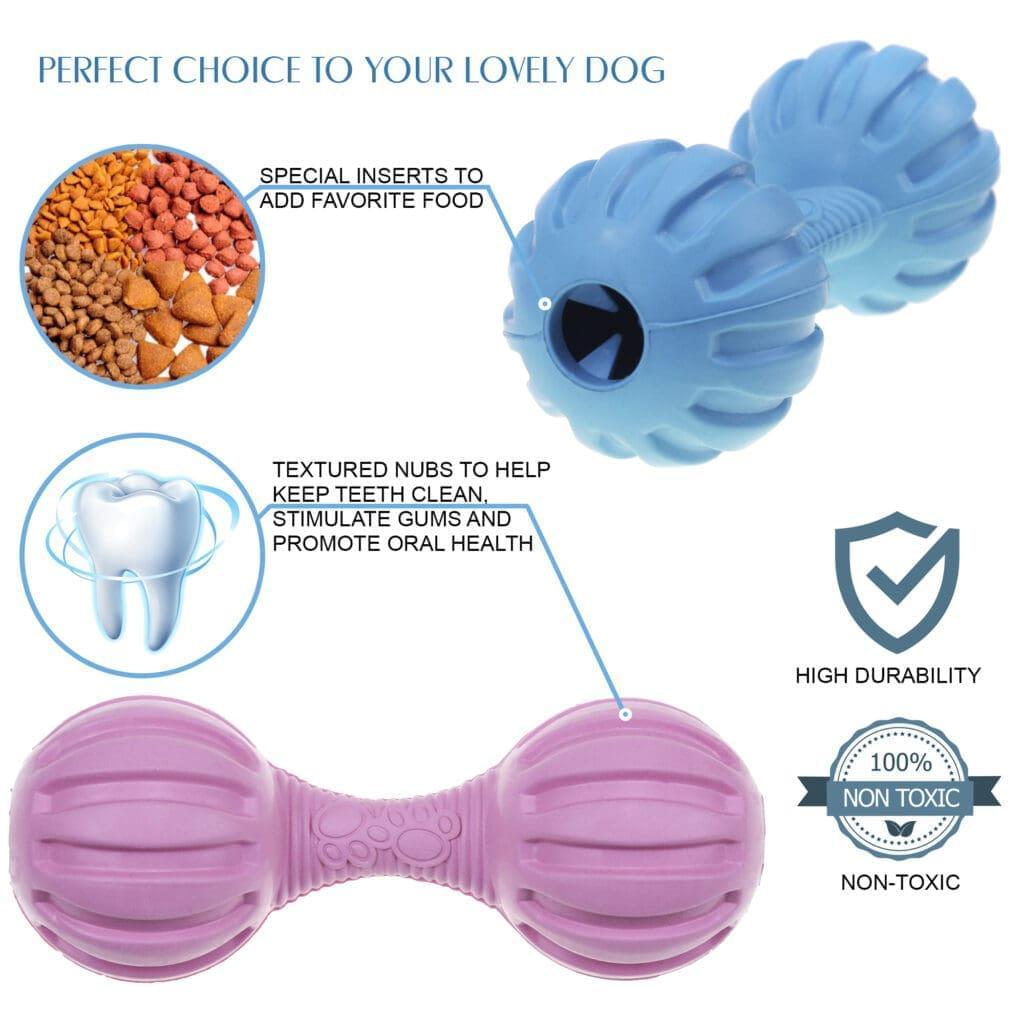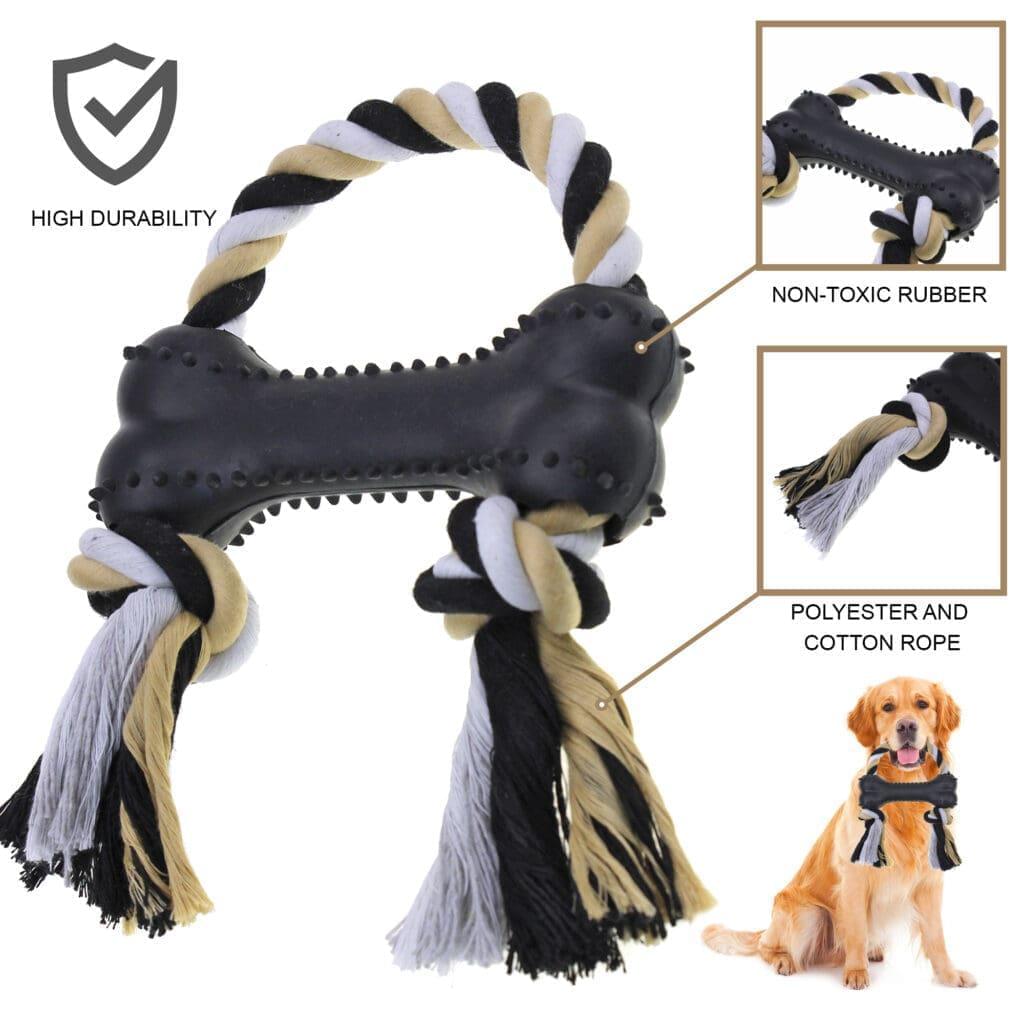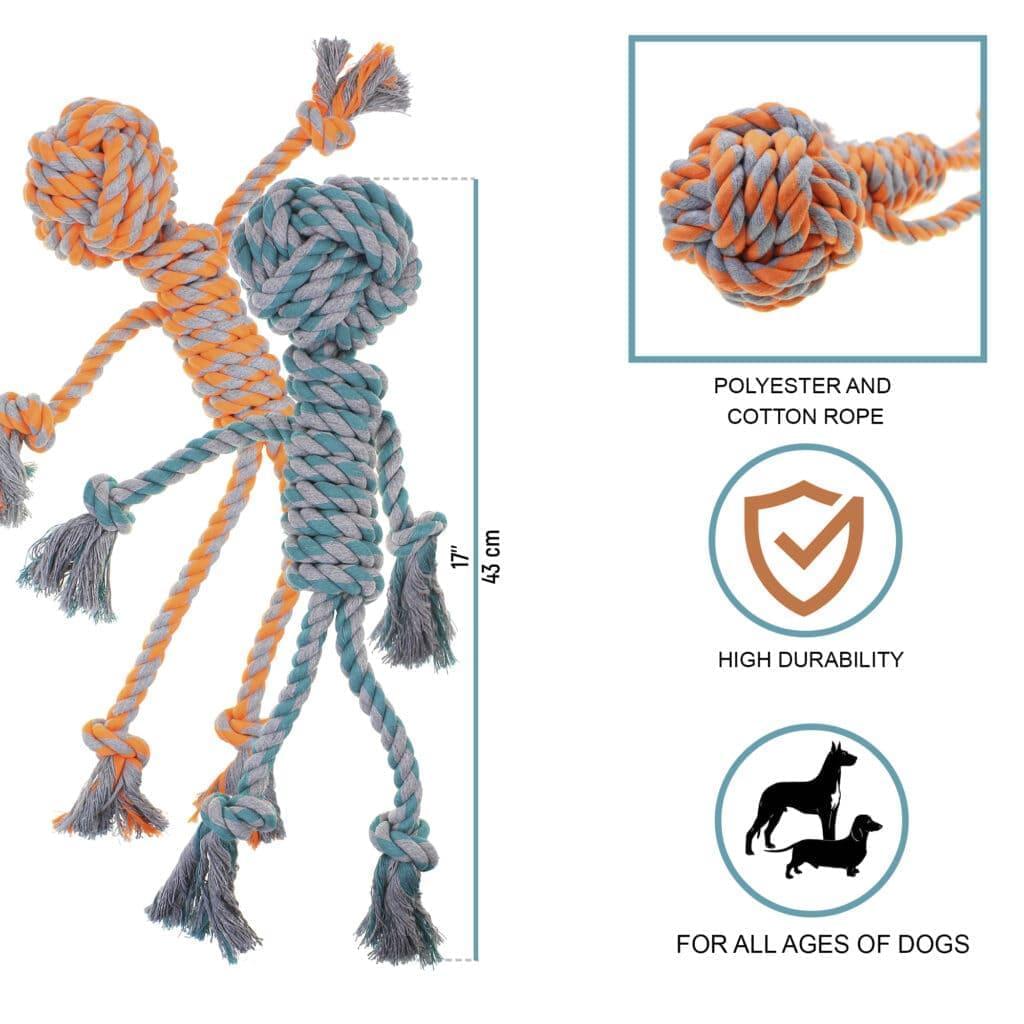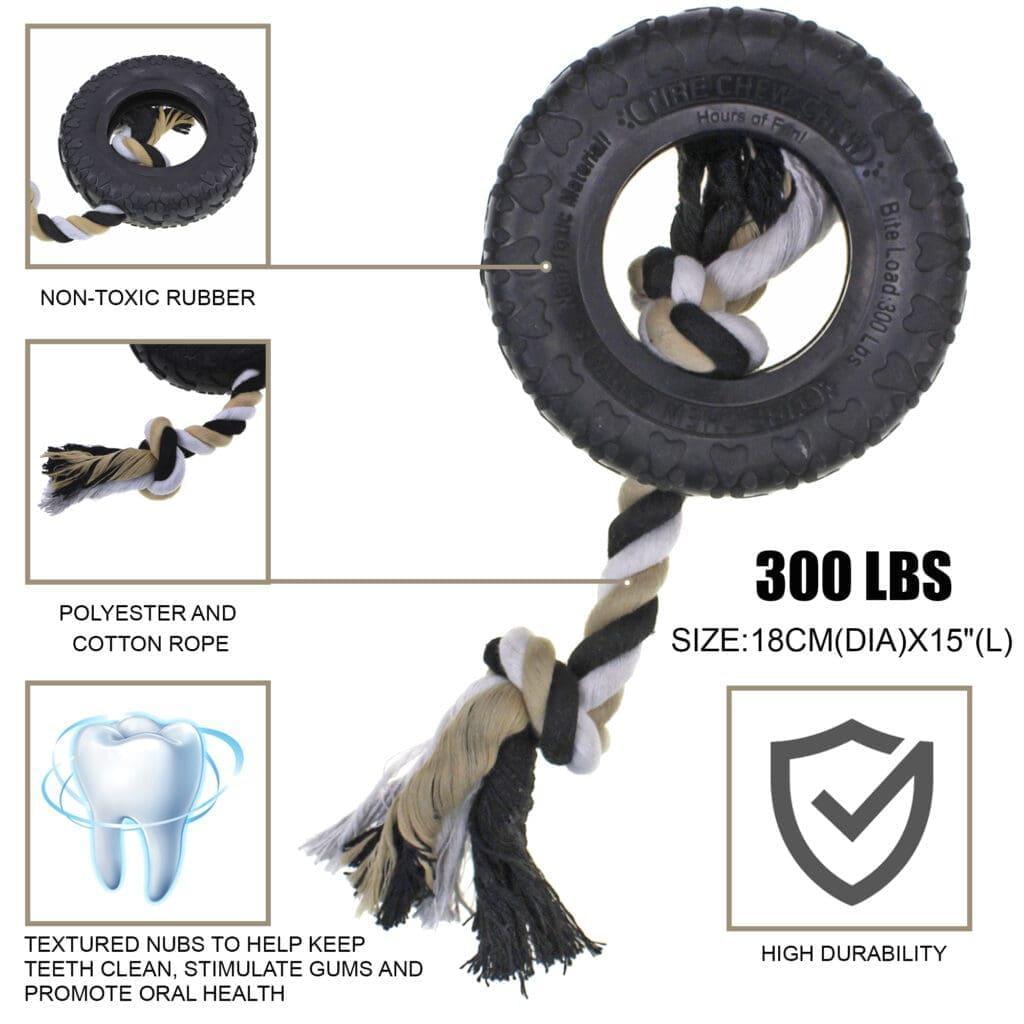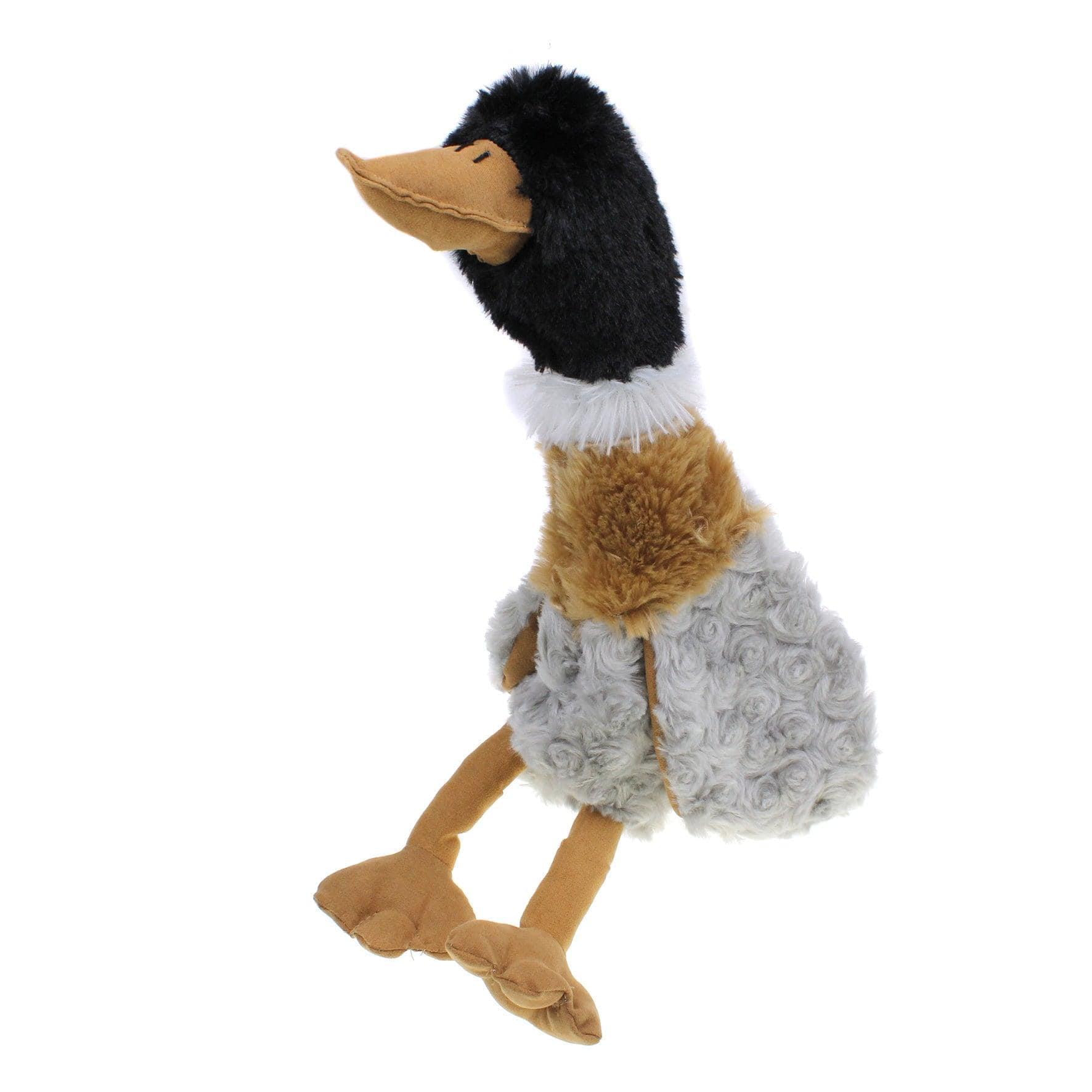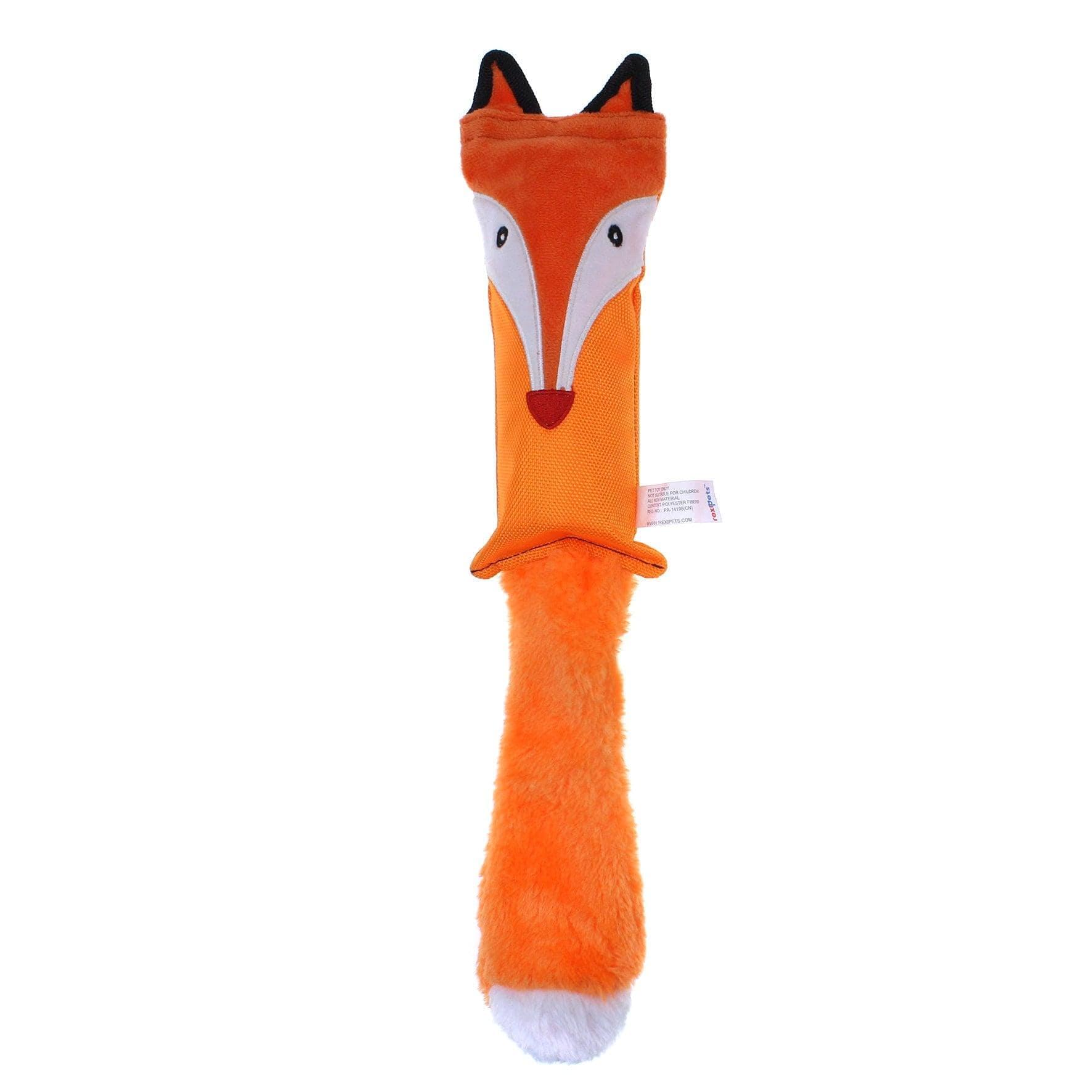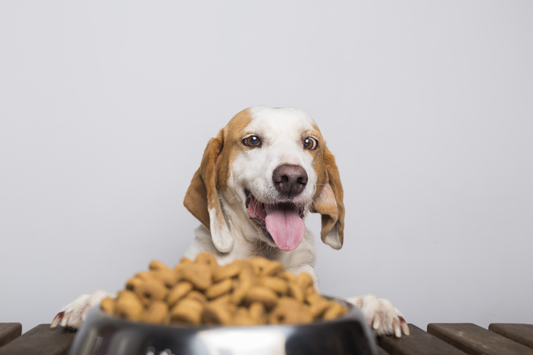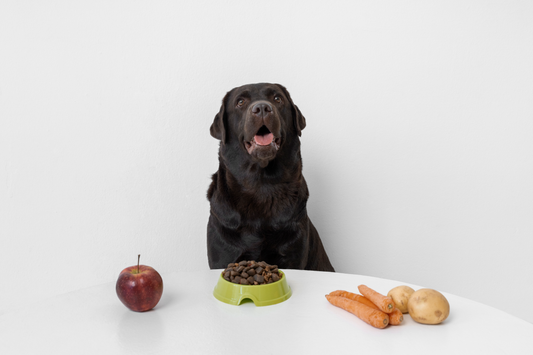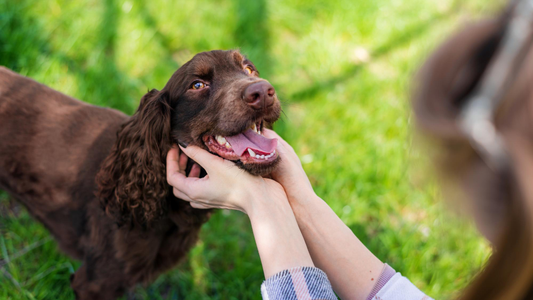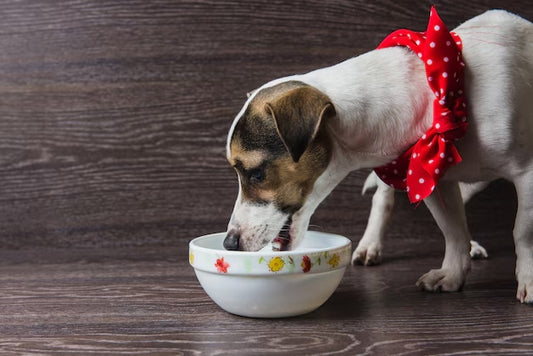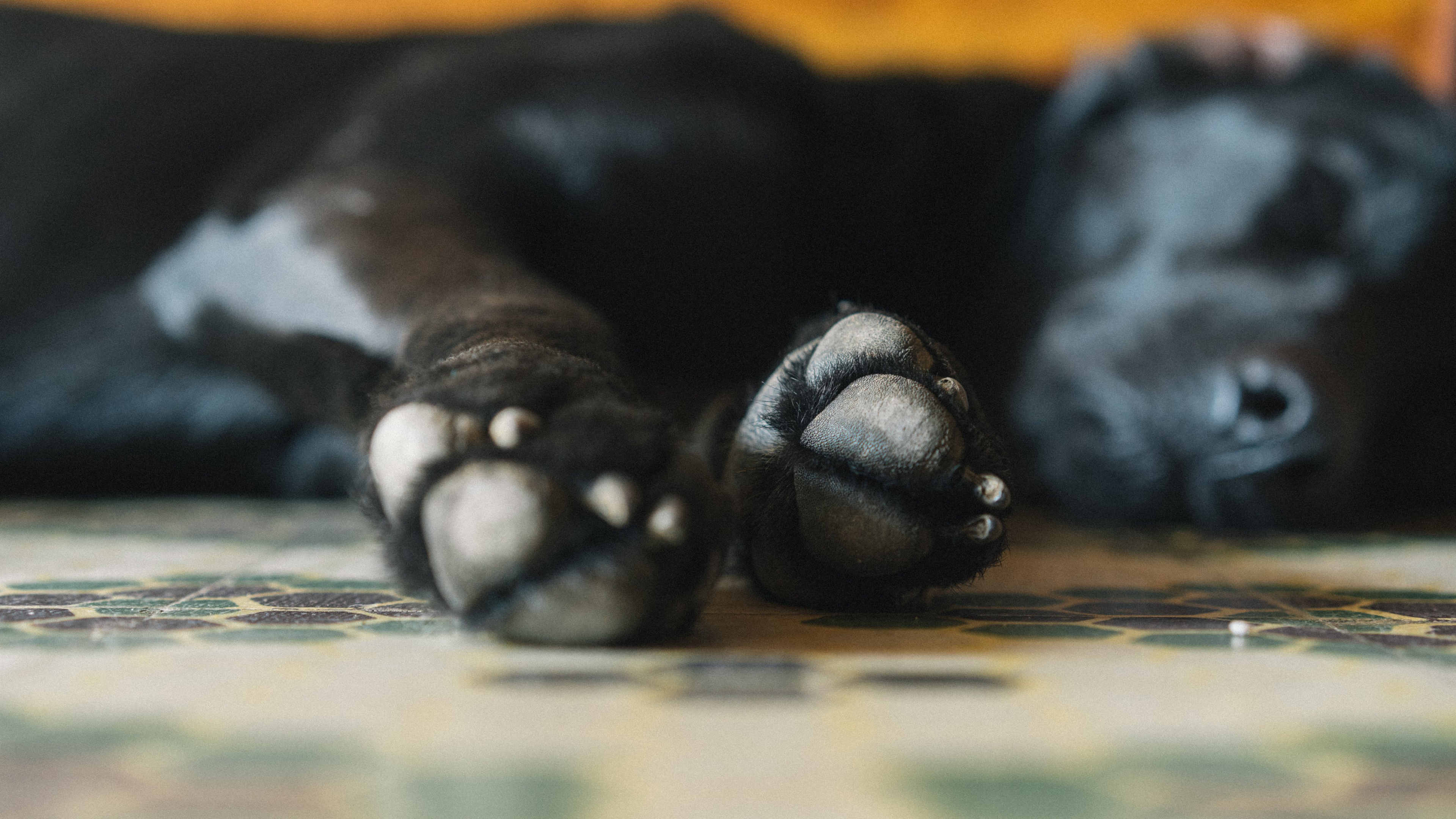
Did you ever find your dog licking or biting their paws? Mostly, dogs chewing their paws is considered normal behavior. They do this to clean their paws, remove debris picked from walking outside, itch, and even do it out of boredom.
There is a famous saying that a dog is a man's best friend. They are loyal and playful. Plus, dogs can provide endless joy to their owners.
However, like humans, dogs can experience various health issues that cause discomfort and distress. One of the common issues that dogs face is paw chewing. Some dogs also chew their toys. But don't confuse that with paw chewing.
Paw chewing is a repetitive behavior where dogs lick, bite, or chew persistently on their paw pads. Paw chewing is a common behavior that can lead to irritation, inflammation, and even infections. While it may seem harmless, paw chewing can indicate underlying health issues that must be addressed.
As a responsible pet parent, it's crucial to understand what paw chewing is and how it can harm your furry friend's health.
Let's discover how some seemingly harmless paw licking can adversely impact your dog.
11 Reasons Why Your Dog Is Chewing Paws

For proper treatment, it is essential to understand why dogs chew their paws. In the following part of the post, we will discuss what may be causing your dog to act this way.
1) Allergies
Allergic dermatitis in dog allergies is a complex condition caused by various factors. Common triggers include fleas, seasonal changes, dust, and certain foods. Food allergies are difficult to diagnose because there are many potential culprits, and each dog can have a unique set of allergies.
One study identified beef, dairy products, chicken, and wheat as the most common triggers for food allergies in dogs.
When a dog has an allergic reaction, their immune system goes into overdrive, causing redness, soreness, itching, and inflammation in the skin. The severity of the reaction in allergic dogs can vary from mild to severe, and the symptoms can appear anywhere on the dog's body, including the dog's paws.
Important Note: Pet parents need to work closely with their veterinarians to address allergic dermatitis. The first step is to figure out the cause of the allergy, which may require allergy testing or an elimination diet.
Once the dog allergens are identified, the dog can be treated with medication, dietary changes, or other therapies, as the veterinarian recommends.
In some cases, allergic dermatitis may be a chronic condition that requires ongoing management. Pet parents should consult their veterinarians to create a treatment plan for their dog's needs and minimizes the risk of future allergic reactions. With proper care and management, most dogs with allergic dermatitis can lead happy, healthy lives.
2) Blisters
Blisters on a dog's paw pads can cause discomfort and pain. These blisters can occur for various reasons, but one of the primary causes is when a dog's paw rubs against a rough surface while walking.
Important Note: This can happen when dogs walk on abrasive surfaces, such as concrete or gravel, for prolonged periods.
In addition, blisters on a dog's paw pads can also result from paw pad burns. This typically happens when a dog walks on the hot tarmac during the summer season, which can cause the paw pads to become irritated and blistered.
Treating blisters on a dog's paw pads promptly is essential to prevent them from getting worse and becoming infected. You should keep the affected area clean and dry and avoid exposing the itchy paws to further irritants or rough surfaces.
Important Note: If the blisters are severe, a visit to the vet may be necessary for medical treatment, such as antibiotics or pain medication.
3) Cysts
Cysts in dogs develop when sweat, skin cells, and hair become trapped underneath the skin's surface. Although most cysts are non-cancerous and harmless, pet owners should never try to remove or pop them alone. It is crucial to show any suspected cysts to a veterinarian who can examine and diagnose the condition.
Based on the severity and type of cyst, the vet will recommend whether removal is necessary. It is always best to seek professional medical advice to ensure the health and well-being of your furry friend.
4) Insect bite
Just like humans experience itchiness when bitten by a mosquito, dogs can also suffer the same irritation when bitten by insects.
The discomfort and annoyance caused by insect bites can be equally frustrating for our furry friends. Thus, it may be why your dog is licking or chewing its paws.
5) Dandruff
While humans typically only experience dandruff on their scalp, dogs can develop dandruff all over their bodies. This condition can occur in dogs if they are not groomed correctly or due to underlying issues such as allergies. So, use the right dog grooming accessories.
6) Hots spots
Hot spots refer to a sudden patch of acute moist dermatitis on a dog's skin. Unfortunately, these hot spots can worsen if the dog continuously licks or chews the affected area, which can cause bacterial or yeast infections and further irritate the skin.
Therefore, it is not beneficial for the dog to try to take care of the hot spot by licking or chewing it.
7) Mites
Mites are small parasites that can quickly spread between dogs. Female mites burrow into the dog's skin to lay eggs, causing itching and the appearance of small bumps.
8) Ringworm
This is a fungal infection that affects the skin and internal organs. Symptoms include circular red lesions on the skin that can be itchy and uncomfortable.
9) Ticks
Ticks are small insects that bite dogs, causing skin irritation and soreness. They can also transmit diseases like Lyme disease.
10) Joint or muscle pain
When dogs experience joint or muscle pain, they cannot self-massage as humans do. Instead, they lick and even chew their paws to alleviate their discomfort.
Although we may believe our dogs are tough, they are susceptible to joint stiffness and soreness due to aging and arthritis. Sometimes, dogs may experience pain in their paws, even if the cause of the pain is elsewhere in their body.
For instance, just as humans may feel knee pain due to back issues, dogs can also experience pain in their paws caused by other bodily imbalances.
11) Behavioral issues
Dogs are social animals that require stimulation, exercise, and social interaction to stay healthy and happy. However, just like humans, dogs can experience behavior problems.
Some common behavior issues include anxiety, boredom, stress, and separation anxiety.
Anxiety
Anxiety is a common problem in dogs. It can be caused by factors such as loud noises, separation from their owner, new environments, or unfamiliar people. Dogs with anxiety may exhibit destructive behavior, such as chewing on objects, excessively licking, or chewing on their paws.
Boredom
Boredom is another problem that can lead to behavior issues in dogs. When dogs are not given enough mental and physical stimulation, they can become restless and destructive. They may chew on objects or their paws to relieve their boredom.
Stress
Stress is another factor that can cause dogs to exhibit behavior problems. Stress can be caused by changes in routine, such as moving to a new house or having a new family member. Dogs may chew on their paws to self-soothe and relieve their stress.
Separation anxiety
Separation anxiety is a common problem in dogs and can occur when they are left alone for extended periods. Dogs with separation anxiety may engage in destructive behavior, such as chewing on their paws or other objects when their owner is away.
Important Note: Suppose you notice any behavior problems in your dog. In that case, it is essential to address them promptly to prevent other issues from developing.
Always consult a veterinarian or a professional dog trainer to identify the underlying cause of the behavior and develop a plan to address it. Many behavior problems in dogs can be successfully resolved with patience and consistency.
Dogs are intelligent and social animals that require physical and mental stimulation for a healthy and happy life.
Dog owners need to provide their pets with enough mental and physical stimulation and must identify and address any underlying emotional issues that may be causing their dogs to engage in these behaviors.
Why Is Paw Chewing Bad For Your Dog?

Understanding why paw chewing is bad for your dog's paws and how to prevent it from becoming a persistent paw licking is vital.
So, let's find out how dog foot chewing can be harmful and what it can cause:
1) Inflammation
Firstly, constant paw chewing or licking can lead to irritation and inflammation of the skin. This can cause discomfort and even pain for your furry friend.
The constant licking, biting, and chewing can break down the skin's protective barrier, making it more susceptible to bacterial and fungal infections. These infections can lead to further discomfort and, in severe cases, may require antibiotics or other medical treatments.
2) Hot spots
Additionally, occasional paw licking and chewing can lead to the formation of hot spots. These areas of the skin become inflamed and infected due to excessive licking or chewing.
Hot spots can be very painful and may require medical attention.
3) Calluses
In some cases, excessive paw chewing can also lead to the formation of calluses. This occurs when the skin on the paw becomes thickened and hardened due to the constant rubbing and pressure from the dog's chewing.
While calluses may not be painful, they can cause discomfort and require medical attention if infected.
4) Gastrointestinal issues
Paw chewing can also lead to the ingestion of harmful substances. Dogs may accidentally ingest small objects or chemicals that are present on their paws. This can lead to gastrointestinal issues and potentially even poisoning.
As a pet owner, addressing paw chewing is essential to ensure your furry friend's well-being. Identifying the underlying cause of paw chewing is crucial to properly treating and alleviating your dog's discomfort.
How To Stop Your Dog From Paw Licking?
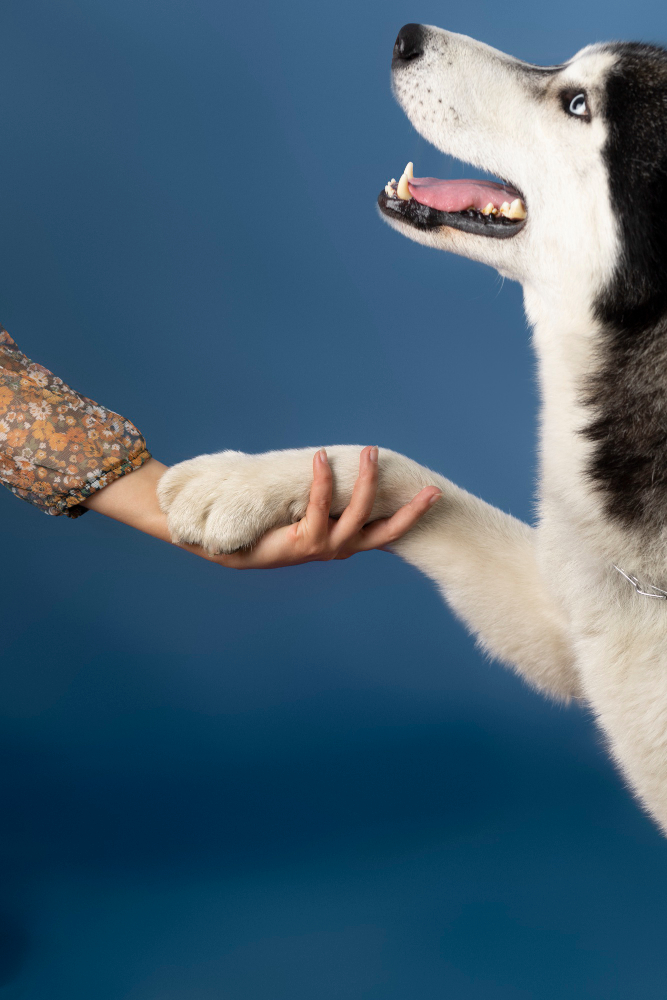
Now let's discuss various techniques and methods to stop your dog from paw licking. For that, you have to identify potential triggers for paw chewing to implement behavioral and medical interventions.
Medication
When dogs suffer from persistent itching due to allergies, a veterinarian may prescribe shots or steroids to help alleviate the symptoms. Medicated sprays can treat the affected areas in less severe cases of fungal or yeast infection.
While giving your dog over-the-counter allergy medications like Benadryl or Zyrtec may be tempting, it's crucial to consult your veterinarian. This is because the dosage and safety of these medications for dogs can differ from those for humans.
Your veterinarian can guide you on correctly using these medications for your dog's situation. They may recommend a different medication or dosage depending on the underlying cause of the itching and the severity of the symptoms.
Apple cider vinegar
Apple cider vinegar (ACV) is a popular natural remedy for various health conditions, including human and dog skin issues. ACV contains acetic acid, which has antimicrobial and antifungal properties, making it effective against certain infections.
However, it's important to note that ACV should be used with caution. And use it under the guidance of a veterinarian. Before using ACV on your dog's skin, dilute it to a 50:50 ratio with water. Avoid using it on open cuts or grazes, as it may cause stinging and irritation.
Additionally, while ACV may help alleviate some of your dog's paw-licking symptoms, it's not a cure for underlying medical issues resulting in such behavior. Therefore, it's always best to consult a veterinarian to determine the root cause of your dog's paw licking and develop an appropriate treatment plan.
Behavior training and tracking
Suppose your dog is licking or chewing their paws due to stress or anxiety. In that case, a dog behavioral trainer may be able to help. These professionals can work with your dog to identify the root cause of their anxiety and develop a behavior modification plan to help them cope with their feelings more positively.
It can also be helpful to track when your dog is licking or chewing its paws and any potential triggers. This information can be shared with your vet and the behavioral trainer to help them identify patterns and develop an appropriate treatment plan.
Important Note: Ask yourself questions such as: Does it happen at a particular time or after a specific activity? Is there a particular season or weather pattern that triggers the behavior? What kind of food, shampoo, or other products have you used on your dog that might be irritating?
By keeping track of these details, you can identify potential triggers for your dog's paw licking and work to eliminate or manage them.
Final Words!
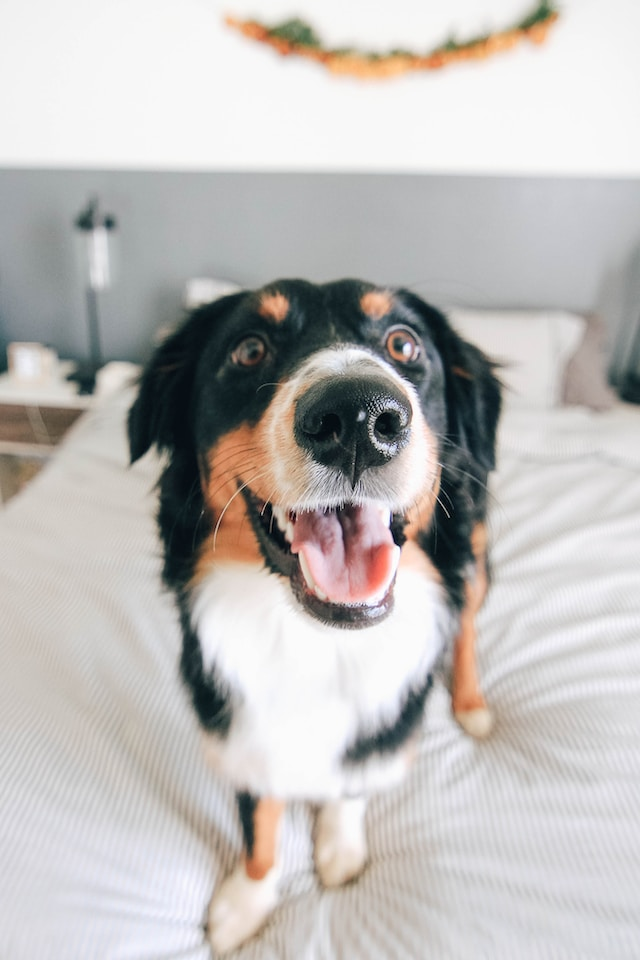
Paw chewing can lead to discomfort, infections, and other health issues for your furry friend. As a responsible pet parent, promptly monitor your dog's behavior and address any signs of paw chewing.
You can ensure your furry friend's well-being and happiness for years by providing the appropriate care and treatment.
